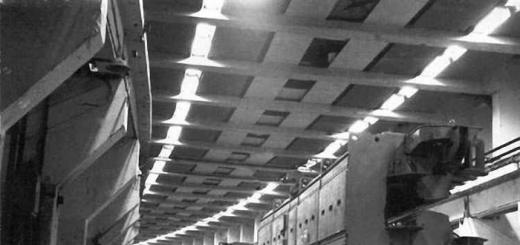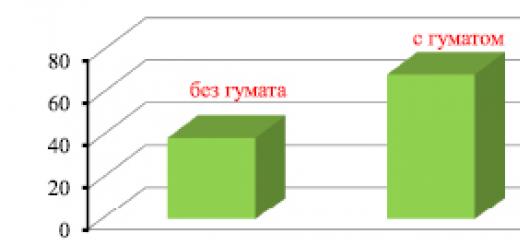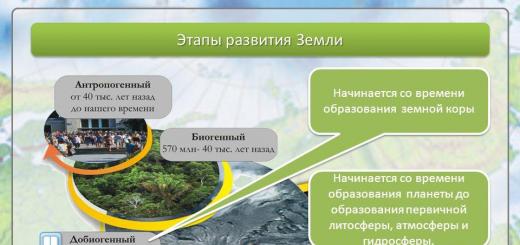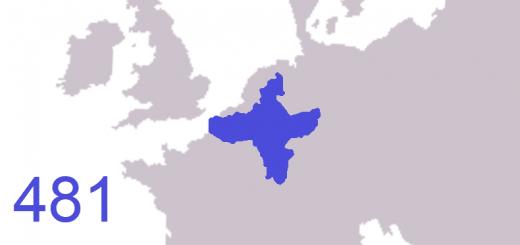Until recently, the education system in our state had a unified structure that was understandable to everyone. There was compulsory education, a system of vocational schools and technical schools, and higher educational institutions. Over the past one and a half to two decades, everything has changed significantly. Lyceums, colleges, academies, and universities appeared, which were previously unknown, while the usual schools and technical schools were preserved. How to understand this diversity? Which institutions guarantee obtaining a higher education diploma, and which can provide the necessary skills and undergo secondary vocational training? Let's stop at the first stage and consider what secondary specialized education is.
Education at this level is provided by educational institutions, better known as schools and technical schools (today they often act as lyceums and colleges). According to existing provisions in the education system, these institutions are required to implement educational programs that provide a sufficient level of knowledge, professional abilities and the necessary work skills that secondary specialized education requires.

In case of successful completion of the training program and work practice, graduates receive a diploma of the established standard, confirming the level of education and specialty of the graduate. If, for certain reasons, a student is studying, but has studied for at least six months and successfully passed the final certification in a working specialty, he may be issued a certificate of qualifications.
Any citizen of the country can receive this type of education subject to a number of conditions:
- availability of a certificate of general compulsory secondary/complete education or primary vocational education;
Equipment adjustment and road construction;
Auto mechanics and plastering, painting and finishing works.
Moreover, students who have received secondary specialized education in 65% (!) percent of cases are successfully employed in the first year after graduation and work in their specialty. More than 10% continue their studies at universities in the country.
Instructions
As a way out for those who still want to become holders of a certificate, it can be proposed to use the provisions of Order of the Ministry of Education of the Russian Federation of June 23, 2000 N 1884 “On approval of the Regulations on obtaining general education in the form of external studies.” To do this, you need to contact any educational institution that is accredited and ready to provide external students, and submit documents consisting of:
- Application for state final certification as an external student
- Document confirming: certificate of study at an institution of general (primary, basic, or secondary) or vocational (primary or secondary) education, certificate of basic general education (incomplete secondary education).
Based on the results of the certification, a certificate of secondary education will be issued.
Video on the topic
Now in most regions of the Russian Federation, a schoolchild is required to receive only secondary general education, that is, complete nine grades. But many people understand that with such an education it is very difficult to find a job. You must either enter a secondary specialized educational institution or graduate from high school. But what should a student do if he has difficulties during his studies?
Instructions
Determine what is causing your learning problems. Sometimes the reason may be poor relationships with individual teachers or unsuitability for a particular person, for example, too high demands in school. In this case, a good opportunity to still obtain a certificate of complete secondary education would be to transfer to. But before you do, learn as much as you can about your new school and keep in mind that even the simpler curriculum requires effort to master. After all, it is important not only to obtain a certain document on education, but also to have the appropriate knowledge for use in further education.
Also, if for some reason you are not satisfied, then you can enroll in a secondary specialized educational institution (SSUZ). They exist in completely different directions. After training in some specialties, the graduate will have the opportunity to receive . Education at a secondary school for those who have completed nine grades of school lasts three years, and a diploma received from an educational institution gives the same rights as a regular school certificate - if you want, you can change your specialty and enter any university.
If you received your high school diploma a long time ago, you work and you do not have the opportunity to return to a regular school or go to school, you can enroll in an evening school to study in the tenth and eleventh grades. The schedule at these educational institutions is designed so that you can combine work and study. At the end of the course, you will receive a full-fledged certificate and will be able to take the Unified State Exam for subsequent admission to a university.
Secondary technical education today is not yet sufficiently popularized in our country, although state policy is aimed precisely at this. And those people who understand that it is not necessary to graduate from a university in order to earn a decent living will have the opportunity to reach professional heights.

Advantages of secondary technical education
Every school graduate is once faced with the question of what profession to choose and where to go to study. Every graduate of a basic school, that is, who has completed 9 grades and successfully passed the State Examination, can receive a secondary technical education. Secondary technical education is received at a technical school. A technical school differs from a college in that the latter involves obtaining specialized secondary education. A diploma of secondary technical education will give you the opportunity to even become a mid-level manager.
When choosing your future profession and educational institution, pay attention to what subjects are included in the curriculum, what the teaching staff is and what certificate of completion you will receive. After graduating from technical school, you will be able to work as a cook, mechanic, train driver, programmer, etc. These are quite worthy and highly paid professions.
Education at the technical school can be completed both full-time and part-time and part-time (evening classes). Part-time and evening courses are possible for those who will enter the technical school after. In general, obtaining secondary technical education after grade 11 will take much less time than after grade 9. To enter a technical school, you will need Unified State Exam results.
Where to apply
Refer to the document “Procedure for Admission to Secondary Educational Institutions of the Russian Federation”. He will help you decide on the parameters for admission, of which there may be several. For example, do you plan to study on a budget or paid basis, what are the entrance tests, what are the entrance exams in this or that technical school, etc.
However, you should know that each technical school sets its own admission rules, which you also need to familiarize yourself with. Start preparing all the documents necessary for admission in advance, as this is a long process.
If we talk about technical schools in Moscow and St. Petersburg, they train highly qualified specialists who are in demand in production. There are still not very many graduates of technical schools compared to those who graduated from universities, so they often find themselves in a more advantageous position than young people with a higher education diploma in their hands. College graduates find employment faster and easier.
Based on 9 grades, you will have to study at a technical school for 3 or 4 years, and after 11 grade - 2 or 3. If you wish, you can subsequently enroll in a university related to your specialty.
Secondary specialized education is a form of secondary vocational education. You can get it at a technical school or college. Tuition is paid for from the federal budget.
The purpose of education at this level is the training of mid-level specialists and skilled workers, as well as the cultural and professional development of the individual. Citizens with secondary specialized education can become managers and organizers of primary levels in production, assistants to specialists with higher education, and also work independently in many areas.
Admission to a secondary specialized education institution
You can get specialized secondary education at a college or technical school, sometimes training takes place on the basis of lyceums or universities. Any citizen who has completed the school curriculum and has a diploma of basic or complete general education can enroll.
If a student enters college after 9 years of school, his program will contain elements of secondary general and secondary vocational education. If the student wishes, he can undergo certification and receive a certificate of complete general education after secondary specialized education.
The program for students who have completed 11 grades of school has a more professional bias and does not contain elements of the school curriculum. In both cases, the student receives both theoretical information and practical work skills. For blue-collar jobs, internships are provided in workshops and production. Paramedics and nurses do their internships in hospitals. Primary school teachers attend classes in schools.
Documents for admission to an educational organization
To enter an educational organization, an applicant must submit:
- original and copy of passport;
- original and copy of school certificate with attachment;
- certificate of passing state exams and a copy thereof;
- statement;
- a copy of the certificate of assignment of a taxpayer number;
- a copy of SNILS;
- a copy of the health insurance policy;
- medical certificate;
- characteristics from school (not always required);
- documents on benefits (if any);
- photograph of the established format.
If the number of applicants exceeds the number of budget places, the results of the Unified State Exam or Unified State Exam are taken into account. Those who do not pass the number of points may be offered training on a contract basis.
Diploma of secondary specialized education in Moscow
Receiving a diploma of secondary specialized education occurs after successful completion of an educational program approved by the state and passing the final certification. A diploma gives you the right to work in your specialty or continue your education at higher levels. To enter a university, applicants with secondary specialized education are not required to take the Unified State Exam; they can take entrance tests at the university.
If a student was expelled from the institution before passing the exams and receiving a diploma, he will be issued a certificate of the length of study. With this certificate, he will be able to continue his studies in another educational organization in this specialty, but not on a free basis.
A citizen can enter an educational institution of his own free will, or he can be sent by the employment service. In the second case, he will receive a stipend from the employment service throughout the entire period of study. Unemployed people without education, as well as citizens with undemanded specialties, are sent for training.
If you have any legal questions related to obtaining secondary specialized education, contact the lawyers of the Legal Resolution Company. We will provide advice, help you obtain a deferment from the army for the duration of your studies, and appeal against illegal expulsion from an educational institution. Our specialists will resolve disputes with the college administration on your behalf at the pre-trial or judicial level.
It often happens that there is no time or opportunity to attend an educational institution every day, but you need to receive an education. If you study by correspondence, you have to spend about 20 days on sessions twice a year, which employers don’t really like. Many universities are gradually switching partially or completely to distance learning in some specialties, and recently it has become possible to receive. This gives a great chance to many young people to gain knowledge in educational institutions in any city in Russia and around the world, without leaving their home.
Where can I study remotely?
To enroll in college to receive secondary vocational distance education, you need to enter into an agreement with the educational institution. This does not always require going somewhere. For example, you can get distance education in Yekaterinburg by contacting us and concluding an agreement with any college in Russia that is our partner.
The list of secondary specialized educational institutions offering distance education today includes:
- Kursk College of Economics and Management.
- Higher Law College (Izhevsk).
- Regional financial and economic technical school.
- Higher Engineering College.
- Moscow City Open College.
- College at the Moscow Financial and Industrial University "Synergy" and so on.
These and other educational institutions offer job training that can be completed online. These are mainly economic, managerial, legal and pedagogical specialties, as well as programming and IT technologies.
Before choosing a school, check whether it is accredited and familiarize yourself with how the training is organized. Find out more about the establishment on thematic forums and other sources on the Internet. Colleges at universities provide a good chance to get a quality education.
How is training organized?
The personal account on the website of the distance educational institution will be available to the student immediately after the conclusion of the contract, payment and enrollment. There will be all the information and materials necessary for studying. Communication with teachers and other students occurs online, via the Internet. Often classes are held in the form of webinars or telepresence. Chat sessions are also popular. All this helps learning and gives the effect of personal presence.
As for the learning process itself, it has already been worked out and is convenient for students. Thus, all lectures can be viewed at any convenient time on the educational institution’s portal. Practical classes and seminars can be held synchronously, simultaneously for the entire group, using Skype or other programs. Homework will either be sent to the student’s personal account on the educational institution’s website or sent by email. Tests, tests and exams are also taken remotely. The defense of the thesis takes place via Skype in a video conference format, but sometimes it is necessary to be present in person at the final state exams and the defense of the diploma.
The cost of studying at different institutions ranges from 10 to 20 thousand rubles per semester, which is not so much, because you will not need to spend money on travel and accommodation.
If you enter after 11th grade, then you will study for about 2 years and 10 months, depending on the direction, and those who have completed only 9th grade will receive knowledge a year longer.
What is it impossible to study remotely without?
First of all, these are not even technical resources, but your desire, discipline and responsibility. Without these qualities, it will be difficult to study without constant supervision. And the requirements for students studying distance learning are no less than those imposed on full-time or part-time students. You should not expect any special privileges or concessions. Just because you decide when and how you study the material does not mean that you will be asked less.
But we can’t do it without technical resources. You will definitely need a computer or laptop and reliable high-speed Internet. It is advisable to have a spare mobile modem so that situations do not arise when the Internet is lost during a webinar or test, and there is no way to switch to another provider. High-speed Internet is especially relevant for synchronous classes.
In order not to waste your time and nerves, save copies of all the work you have completed and the necessary training materials on Yandex Disk or other similar storage facilities (in case your computer breaks down).
Advantages and disadvantages of such training
Distance learning has a number of significant advantages:
- You can study in any city in Russia and the world without leaving anywhere.
- You can study when it is convenient for you and you have time for it.
- Studying does not interfere with work.
- If you were unable to enroll on a budget, then distance education will cost you much less than paid full-time education.
- Being at home makes it psychologically easier to pass tests and exams. It is also easier for many people to communicate and ask questions remotely without fear of mistakes.
In addition to advantages, distance learning also has disadvantages:
- One of the main disadvantages is that there is no opportunity to receive free education. But the price of training is not as high as in a full-time course, and saving money on travel and accommodation compensates for the cost of training.
- For those who enjoy interacting with fellow students, this type of study offers few such opportunities. But there is another category of people for whom this is very convenient.
- This type of training is not suitable for those who cannot force themselves to study on their own, and for whom it is important to attend lectures and practical classes in person, and not via the Internet.
So, the opportunity to receive secondary vocational education remotely is a good alternative to correspondence and even full-time education. Since the student studies all the material independently, high motivation and independent learning skills are needed. Therefore, before you decide to receive distance education, really assess your strengths.
The authenticity of the diploma is checked at the university if you are going to continue your studies or get a second higher education. Employers also do not forget to do this, especially if you are applying for a responsible position or work in government agencies. We will tell you how to find out whether the document in front of you is original or not in this article.
A red diploma is awarded to excellent students, students who have had outstanding success during their studies. Despite all the claims that the color of the document does not affect success, employers pay attention to this fact. And if the recruiter has a choice between two candidates, he will give preference to the person with honors. What is its difference from the usual one, how to get the document and what it will give - read about it in the article.
After the higher education system was updated, many applicants were puzzled by the innovations. So, instead of the specialists that universities produced earlier, you can now get bachelor's, master's and specialist diplomas. What is the difference between these concepts? What knowledge has a person with a master's degree received, and what has a specialist studied? We will talk about this today in this article.
The first document that speaks about a person’s education is a certificate. It confirms that a basic level of knowledge has already been acquired. But many schoolchildren do not understand why else they need this document. Moreover, schools often threaten with expulsion and non-issuance of a certificate. What does this threaten and why is it needed at all? We will talk about this in more detail in the article.
You can go to college after nine or eleven years of school. Many people prefer institutes, believing that they provide less quality knowledge elsewhere. However, a person with a college degree is no worse. He is also able to build a successful career, earn good money, and get a job in demand. What does a college degree do? Read about this in this article.
Incomplete higher education was previously confirmed by a special diploma, but this has now been abolished. Instead, they issue a certificate of courses taken and exams passed. Despite its incompleteness, such education will not be useless. It will allow you to continue your studies - enroll in another institute, and recover. Also, a certificate of incomplete higher education is required at work to register for employment.
The easiest way to obtain such a document is if you live in the same city where you studied. In other cases, you will have to spend more time.
Many schoolchildren do not understand why they need to study all 11 grades if they can leave after nine. Of course, you want to quickly forget about lessons, tests and homework. But they are also waiting for them in college. It’s not always worth leaving after nine years, losing a lot of promising options. If there is such an opportunity, it is better to study 11 classes.
Incomplete higher education – a similar characteristic is given to studying at a university, which the student was unable to bring to its logical conclusion. The reason for this may be the desire to change the specialty and leave this institute or poor academic performance. Instead of a diploma, a person receives a certificate about the duration of training, its terms, exams and courses.
The varieties of modern higher education in Russia often confuse those wishing to enroll in a particular university. From future students you can hear the following question in its various variations: is a bachelor’s degree a complete higher education or not?
What is the difference between a bachelor's degree and a master's degree?
15 years have passed since Russia joined the Bologna process, aimed at the harmonious integration of higher education systems in European countries.
Like colleges, technical schools have the status of secondary specialized educational institutions in which students receive vocational education. In Russia, the first technical schools appeared in the second quarter of the 20th century.
After graduating from school, graduates who want to obtain a sought-after specialty and a highly paid job in the future are interested in enrolling in college. But not everyone fully understands how a college differs from a technical school or college and what kind of education it will provide to applicants. The most common question concerns the quality of education they receive.
On social networks and on various forums, the question of how to restore a lost diploma is often raised. There are many situations when you need a document confirming your education, but you don’t have it on hand. Read more about document recovery in our article.
Potential applicants choosing an educational institution for future admission often wonder: what is the difference between secondary education and specialized secondary education. Let's look into this issue.
Many job seekers are interested in the question: secondary specialized education - what kind of education is this? To get the answer, let's understand the terminology. Secondary specialized education (or SSE) is the average level of vocational education between school, vocational school and university. This educational level involves students receiving a variety of technical and humanitarian specialties, subject to a high school diploma.










